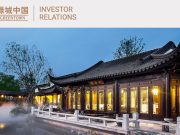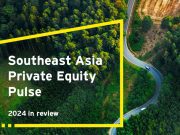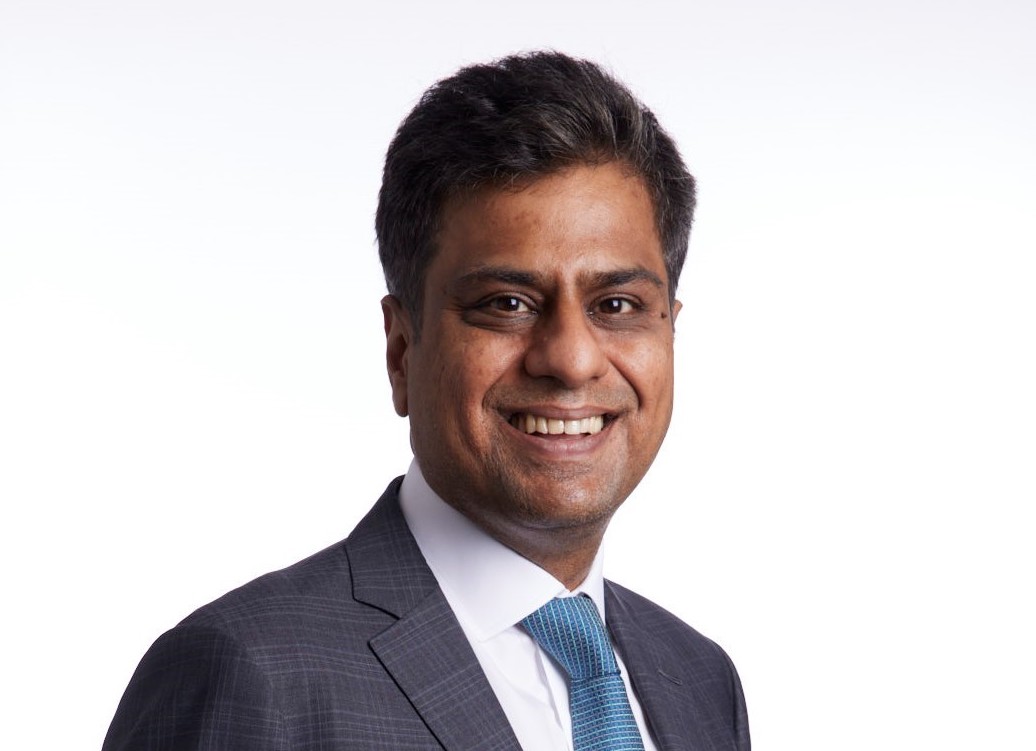FSSA Investment Managers Vinay Agarwal Director: Why Indian Stocks are Poised for Post-COVID Growth
Investment commentary on India equity market, by Vinay Agarwal, Director of FSSA Investment Managers:
FSSA Investment Managers (FSSA IM) is an autonomous team within First Sentier Investors. FSSA IM are bottom-up investors, using fundamental research and analysis to construct high-conviction portfolios, conducting more than a thousand direct company meetings a year, seeking to identify high quality companies that they can invest in for the long term. FSSA IM manages $37.2 billion globally (31/3/21).
Why Indian stocks are Poised for Post-COVID Growth

The multitude of smaller, family-owned businesses that populate the Indian stock market can provide a powerful vehicle for growth. After almost two decades investing in Indian companies, I have learnt that building long-term relationships with the management teams of quality companies is key to delivering sustainable outcomes for our investors. This article outlines some of the reasons why now, more than ever, India is an attractive market for global investors seeking diversification and growth.
Small is beautiful
India is one of the oldest stock markets in the world, and has about 6,000 listed companies. Even if you apply basic governance and growth filters, there are more companies in India to choose from than in many other emerging markets.
In India, only around 10% of listed companies have a market capitalisation above US$200m. This compares to China, where firms of that size and above account for 80% of the market.
Many of the companies in India are still relatively small, meaning there is a lot of scope for growth. It’s an untapped market in many ways: with a population of 1.4 billion people increasing their consumption of various goods and services, there is amazing potential for these companies to become a lot bigger in years to come.
Alignment of interests
In India, there are many family-owned companies, where the managers think of their business in a multi-generational way.
When you meet these owners and managers, you can have discussions ranging from board composition and independence, to remuneration, succession and ESG matters. These conversations are very long-term and strategic in nature. It helps us to find alignment with them, which is a key part of our investment process. We need to see this alignment to have the conviction to buy these companies and hold them for the long term.
Ability to engage
Our entire investment process is predicated on establishing whether a company meets our standards to invest in it. But there are no perfect businesses, and once we establish that a company is investible, we can start to engage with its management team on ways the business can improve.
The key is to demonstrate to these companies that we are partners for the long term, and not just here to make a quick dollar. As a long-term shareholder, we see ourselves in the same boat as the people running the company. In our team, we often say that it is better to travel than to arrive, and we see a relationship with these companies as a journey.
All of our engagements, whether it is through meetings with the managers or letters that we write, focuses on learning about the business and offering suggestions to improve.
Willingness to improve
Through these engagements, we want to gauge whether the company’s managers are willing to listen to its stakeholders. If they listen to us, a shareholder, it tells us something about the culture of the company. Tomorrow, it might be a vendor, a distributor or an employee who has something to share with management, and we want to know they will be heard.
For example, we raised our concerns with the Mahindra Group about their approach to capital management. We wrote to the chairman, and he acknowledged the issues in his reply, outlining the actions they were taking to improve. Moreover, when we subsequently met the new deputy CEO, he was brandishing the letter we had written, ready and willing to discuss it.
This episode spoke volumes about the culture there and increased our conviction in the different Mahindra Group companies that we own.
Positioned for the recovery
We have invested in companies that are market leaders, have higher return on capital and have gained market share through the cycles. Last year, during COVID, as businesses were struggling and markets were volatile, we had the opportunity to invest in high quality businesses that we were watching from the sidelines, and to increase our positions in existing investments.
The FSSA India Equities portfolio is diversified across several sectors where we predict strong growth over the long term: consumer companies, financials, infrastructure and industrials.
In terms of infrastructure, we don’t invest in asset owners directly, because they tend to be very leveraged, and in many cases, have low corporate governance standards. But we invest in companies that are suppliers to these businesses, which should benefit from rising infrastructure spend or industrial activity.
Positive regulatory settings
India has certainly faced challenges in terms of its economy and regulations over the past decade. Between 2002 and 2012, Indian corporate earnings increased by almost five times, but over the last eight years, it has been almost flat2.
There were several reasons behind this slump. In the early 2010s, a lot of corruption and scams came to light and in many cases, these were felt in the Indian financial system – many Indian banks found themselves with broken balance sheets.
There was a freeze in decision-making and a freeze in the economic system, which resulted in a massive slowdown. In 2014, when Narendra Modi became Prime Minister and the Bharatiya Janata Party (BJP) came into power, they implemented a number of positive reforms such as Goods and Services Tax (GST).
While GST initially resulted in chaos and confusion, and a slowdown in the economy, things are now coming together. Those teething issues have been addressed and we’re now seeing an increasing rate of formalisation in the economy because of the reforms. The economy is now set for future success and we have a positive outlook for Indian equities.
This is an investment commentary on India equity market, by Vinay Agarwal, Director of FSSA Investment Managers (15/5/2021).
 About FSSA Investment Managers
About FSSA Investment Managers
FSSA Investment Managers (FSSA IM) is an autonomous team within First Sentier Investors with dedicated investment professionals in Hong Kong, Singapore, Tokyo and Edinburgh. FSSA IM are bottom-up investors, using fundamental research and analysis to construct high-conviction portfolios. They conduct more than a thousand direct company meetings a year, seeking to identify high quality companies that they can invest in for the long term. As responsible, long-term shareholders, FSSA IM have integrated ESG analysis into their investment process and engage extensively on environmental, labour and governance issues. As at 31 March 2021, FSSA IM manages US$37.2 billion on behalf of clients globally.
Disclaimer:
The information contained within this document is generic in nature and does not contain or constitute investment or investment product advice. The information has been obtained from sources that First Sentier Investors (“FSI”) believes to be reliable and accurate at the time of issue but no representation or warranty, expressed or implied, is made as to the fairness, accuracy, completeness or correctness of the information. Neither FSI, nor any of its associates, nor any director, officer or employee accepts any liability whatsoever for any loss arising directly or indirectly from any use of this document. Reference to specific securities (if any) is included for the purpose of illustration only and should not be construed as a recommendation to buy or sell the same. All securities mentioned herein may or may not form part of the holdings of First Sentier Investors’ portfolios at a certain point in time, and the holdings may change over time.
This document has been prepared for general information purpose. It does not purport to be comprehensive or to render special advice. The views expressed herein are the views of the writer at the time of issue and may change over time. This is not an offer document, and does not constitute an investment recommendation. No person should rely on the content and/or act on the basis of any matter contained in this document without obtaining specific professional advice. The information in this document may not be reproduced in whole or in part or circulated without the prior consent of FSI. This document shall only be used and/or received in accordance with the applicable laws in the relevant jurisdiction.
In Hong Kong, this document is issued by First Sentier Investors (Hong Kong) Limited and has not been reviewed by the Securities & Futures Commission in Hong Kong. In Singapore, this document is issued by First Sentier Investors (Singapore) whose company registration number is 196900420D. This advertisement or publication has not been reviewed by the Monetary Authority of Singapore. First Sentier Investors and FSSA Investment Managers are business names of First Sentier Investors (Hong Kong) Limited. First Sentier Investors (registration number 53236800B) and FSSA Investment Managers (registration number 53314080C) are business divisions of First Sentier Investors (Singapore). The FSSA Investment Managers logo is a trademark of the MUFG (as defined below) or an affiliate thereof.
First Sentier Investors (Hong Kong) Limited and First Sentier Investors (Singapore) are part of the investment management business of First Sentier Investors, which is ultimately owned by Mitsubishi UFJ Financial Group, Inc. (“MUFG”), a global financial group. First Sentier Investors includes a number of entities in different jurisdictions.
MUFG and its subsidiaries are not responsible for any statement or information contained in this document. Neither MUFG nor any of its subsidiaries guarantee the performance of any investment or entity referred to in this document or the repayment of capital. Any investments referred to are not deposits or other liabilities of MUFG or its subsidiaries, and are subject to investment risk, including loss of income and capital invested.
Sign Up / Register
Caproasia Users
- Manage $20 million to $3 billion of assets
- Invest $3 million to $300 million
- Advise institutions, billionaires, UHNWs & HNWs
Caproasia Platforms | 11,000 Investors & Advisors
- Caproasia.com
- Caproasia Access
- Caproasia Events
- The Financial Centre | Find Services
- Membership
- Family Office Circle
- Professional Investor Circle
- Investor Relations Network
Monthly Roundtable & Networking
Family Office Programs
The 2025 Investment Day
- March - Hong Kong
- March - Singapore
- July - Hong Kong
- July - Singapore
- Sept- Hong Kong
- Sept - Singapore
- Oct- Hong Kong
- Nov - Singapore
- Visit: The Investment Day | Register: Click here
Caproasia Summits
- The Institutional Investor Summit
- The Investment / Alternatives Summit
- The Private Wealth Summit
- The Family Office Summit
- The CEO & Entrepreneur Summit
- The Capital Markets Summit
- The ESG / Sustainable Investment Summit



































